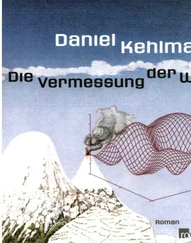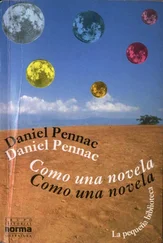He talked to himself softly the whole way. Once he braked sharply, rolled down the window, and spat onto the street. “You business,” he said. “Kill why?”
She smiled to show she didn’t understand.
“Everything,” said the man. “Foam. Lorry?”
She shrugged.
“Hobble,” said the man. “Hobble grease. Why?”
She smiled awkwardly.
“Why?” The man banged on the window. “Grease, the hobble why!”
She lifted her hands and shook her head, but that only made him angrier. He pointed first in one direction, then in another, hit the dashboard, yelled, and seemed to have lost any awareness of the traffic. Finally he braked in front of a building. A guard was leaning against the glass door, a flag flapping above him in the wind. The hotel. They got out.
Cranes towered up against a milky sky. The ground was littered with tin cans, twisted pieces of wire, and shards of glass. The guard yanked open the door and she went in.
The front hall was made of marble, with a fountain in the middle with the water turned down to a trickle. The woman at the reception desk spoke no English. After the driver had harangued her for awhile, she wordlessly handed over a key.
But the room at least seemed habitable. The bed was soft and clean, the faucets in the bathroom worked. Outside you could see a dozen high buildings and factory chimneys. Just as she was about to unpack, the phone rang.
“Downstairs,” said a woman’s voice in uncertain English. “Now.”
She wanted to ask a question but the woman had already hung up. She hastily changed out of her sweat-soaked blouse into a fresh one, dutifully picked up her notebook, and took the creaking elevator down.
A number of men and women were sitting in a semicircle in the front hall on folding chairs. In the middle was a woman wearing a uniform.
“Am I the last?”
The woman asked who she was.
“Maria Rubinstein. I’m Maria Rubinstein.”
The woman stared at a sheet of paper, then shook her head.
“I’m here instead of Leo Richter. They sent me his ticket. I’m replacing him.”
Leo Richter, said the woman. He was on the list!
“He’s not coming. I’m here in his place.”
The woman made a disdainful gesture that obviously implied that nobody could understand what went on in foreigners’ heads. She pointed to an empty chair. Maria sat down and the woman made a short speech. This prominent delegation of the world’s best travel journalists had been invited by the government of the fatherland to report to all nations on its beauty. They would lack for nothing, their every wish would be granted. They would even meet the vice president, the festivities would have no end. And now, the welcome banquet!
She led them into an adjoining room. There was a long table with bowls of cold potatoes. Between them there were platters of fatty roast pork in mayonnaise.
As Maria established very quickly, nobody here was a travel journalist. There were two cultural editors and three trainees who’d been sent because nobody on the staff wanted to come here. Then there also was a science editor from La Repubblica and a friendly man who wrote articles on wild birds for the Observer. An older woman had worked for German Radio before her retirement, and her colleague was only here because there were workmen in her apartment. As soon as dinner was over, Maria went to bed.
She slept badly. The distant sound of machinery woke her again and again. When she got up with a raging headache, she realized she’d forgotten the charger for her cell phone. Dejected, she sent her husband a text message. I miss you. There was no reply. She felt very far away from everything.
In the lobby she inquired about a charger. The receptionist stared at her silently in a state of incomprehension. One by one her colleagues appeared. Most of them were pale and had slept badly. “That mayonnaise,” said the man from the Observer. “Lethal!”
A bus drove them for two hours on potholed streets. As Maria came to out of her drowsy half sleep, they were in front of a factory building. Workers had gathered and were singing. The guide pointed to a conveyer belt. It was impossible to tell what was being made here. A woman brought a plate with roast pork still in its rind. Everyone took a piece hesitantly. The choir sang again, then they drove back. When they reached the hotel, night had already fallen.
Every day that followed was the same. They were driven to a swimming pool in an unlit concrete hall. The water looked cold and smelled of chemicals. The man from La Repubblica asked if he could swim a lap, and the guide said it was impossible. They were driven to a sewage plant, they were driven to a drilling tower in the swamps of no-man’s-land, and an industrial bakery, they were driven to a place where eighty years before there had still been a nomads’ camping ground. Once these people had laid waste to everything, the guide said, with sabers and cudgels and whips, they had ridden out to rape women and burn fields until it was decided to make short shrift of them and they were slaughtered down to the last man. They were driven to the parliament building where several hundred deputies who all belonged to the same party sang the national anthem for them, hands on their hearts and their eyes uplifted to the portrait of the president.
They were driven to an electrical transformer which for some reason was without electrical power, they were taken to a primary school where children in uniform were waiting outside the door and sang them old folksongs for two hours while the sun burned and the flies attacked. The retired editor from German Radio fainted and had to be carried into the bus. The singing went on for another hour before a deputation of schoolgirls handed around roast pork with mayonnaise that they’d made themselves. They were driven to the university, where a professor with a wild beard gave a lecture in almost impenetrable English about the brilliant perspectives and future opportunities of the country. As far as Maria understood, he was talking about steel and oil and the president, and the place smelled of ammonia and the stench from the building sites drifted through the open windows. When he’d finished, they served roast pork.
They were driven out onto the steppes. The bus stopped. They got out. Here, there was nothing.
The grass undulated gently. The sky soared, two little frayed clouds its only decoration. There was no stench, there was no smell, the air was clean. The wind was soft. The plain stretched away to the horizon with nothing to interrupt the eye. A skein of birds floated by. A dragonfly flew up, wheeled in a circle, its wings buzzing, then sank back down into the grass.
As they drove on, it seemed to Maria that they hadn’t moved from the spot; no matter where you looked, nothing changed, in any direction. She closed her eyes. For the moment she was sleeping better on the bus than she did in the noisy hotel.
That evening she switched on her cell phone and called her husband. On the sixth attempt it worked and suddenly she heard his voice.
“Oh God,” she said. “If you only knew.”
“The food?”
“Ah.”
“The people?”
“Ah again.”
Neither of them said anything for a few seconds. She knew he understood.
“The flowers?” she asked finally.
“I water them every day.”
“The garbage?”
“Already took it out long ago. Is it freezing there?”
“It’s boiling. And the mosquitoes are appalling!”
“God!”
They fell silent again, then it occurred to her that she needed to spare the battery. The thought that the phone could actually die made her panic-stricken.
“I’ll be back soon,” she said.
Читать дальше












